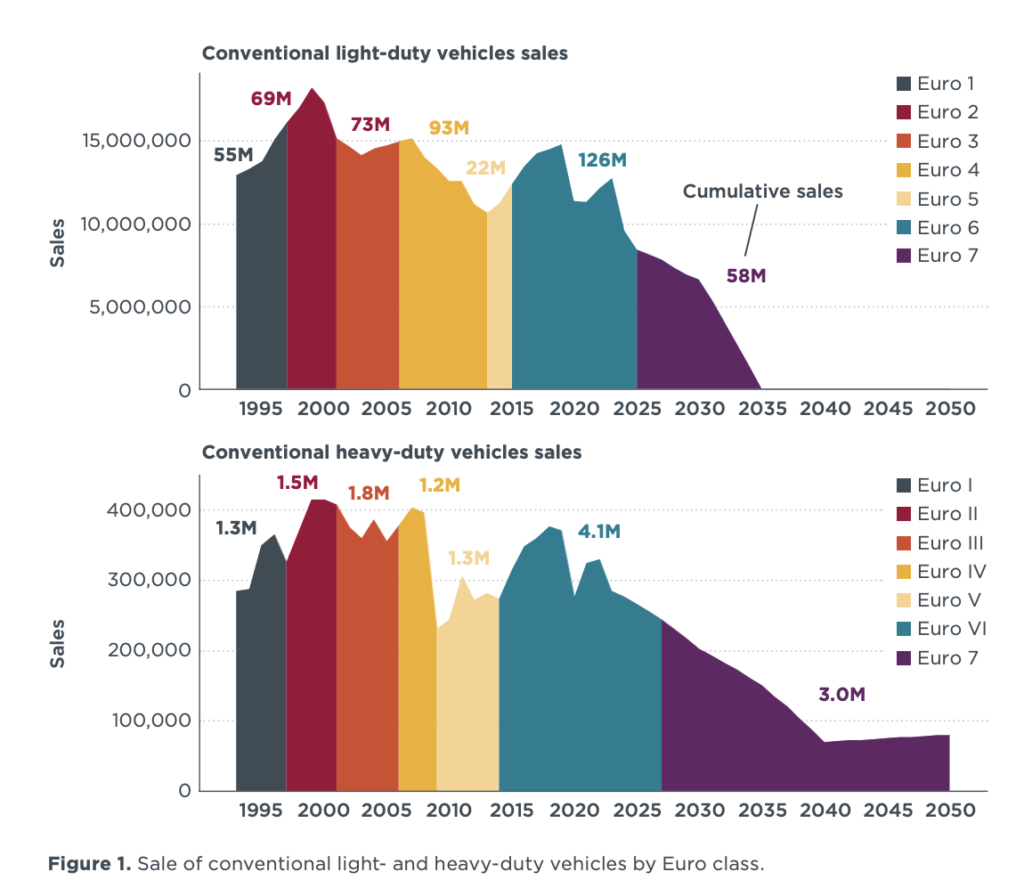In November 2022, the European Commission released its proposed Euro 7 regulation for light- and heavy-duty vehicles, which limits the level of pollutants detrimental to human health, such as nitrogen oxides (NOx) and particulate matter (PM). An ICCT study models the proposed emission reductions and health benefits from implementing Euro 7 with increased stringency and under a delayed implementation schedule.
The analysis finds that implementing the European Commission proposal for Euro 7 would avoid approximately 1 million tonnes of NOX from light- and heavy-duty vehicles through 2050. These reductions would avoid 7,200 premature deaths until 2050, with 56% attributed to reductions in emissions from heavy-duty vehicles. The analysis also finds that each implementation delay would lead to approximately 900 additional premature deaths each year. A delay in line with the proposals from the Environment Committee in the European Parliament would lead to an additional 1,800 premature deaths, according to ICCT.
In line with the upper ambition of the impact assessment that accompanied the original Euro 7 proposal, added stringency could avoid totals of 5,500 premature deaths from light-duty vehicle emissions and 4,400 premature deaths from heavy-duty vehicle emissions. The additional benefits from increased stringency for light-duty vehicles are larger since the current proposal is comparatively less stringent than those for heavy-duty vehicles.

Source: ICCT
